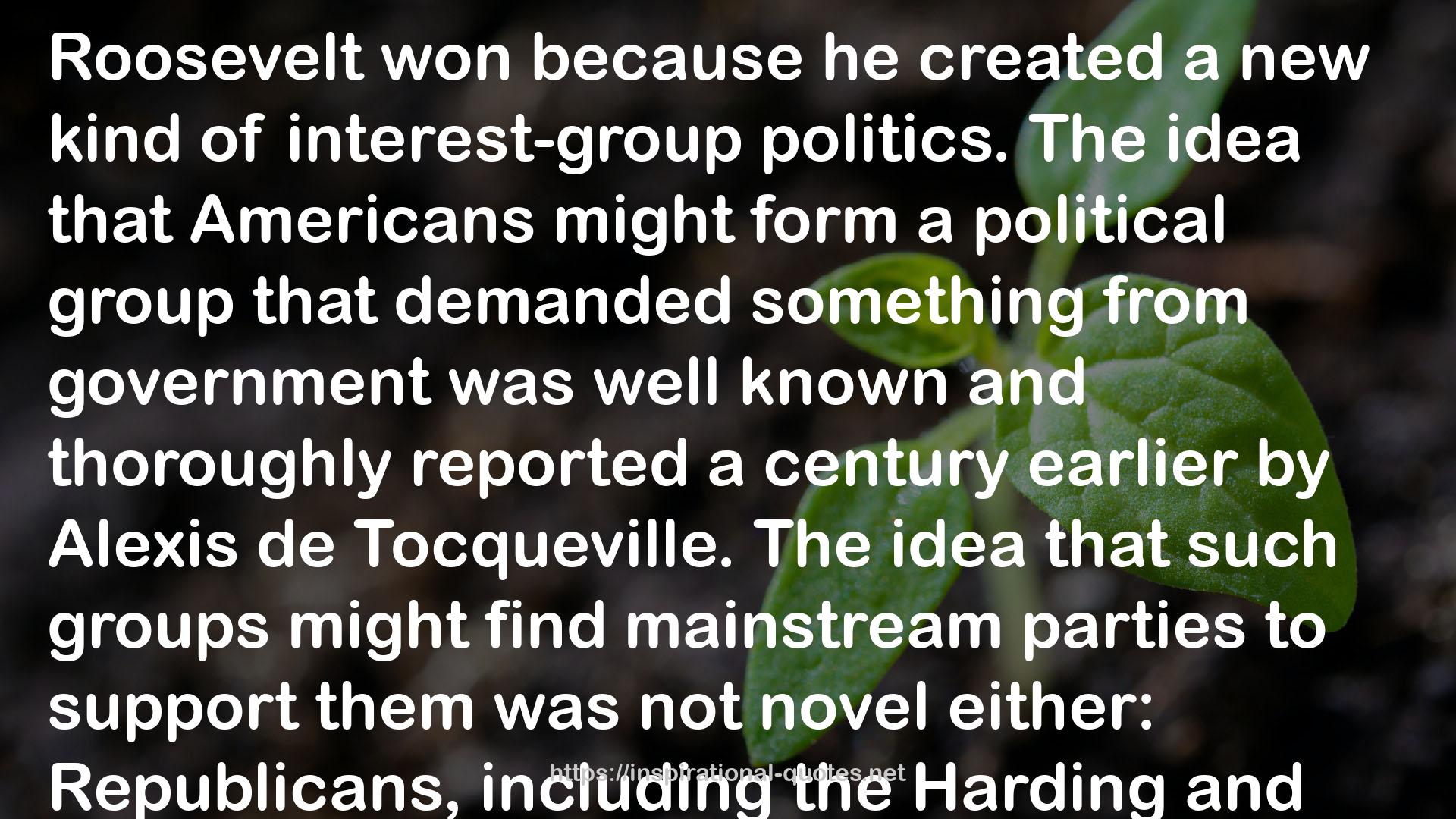" Roosevelt won because he created a new kind of interest-group politics. The idea that Americans might form a political group that demanded something from government was well known and thoroughly reported a century earlier by Alexis de Tocqueville. The idea that such groups might find mainstream parties to support them was not novel either: Republicans, including the Harding and Coolidge administrations, had long practiced interest-group politics on behalf of big business. But Roosevelt systematized interest-group politics more generally to include many constituencies—labor, senior citizens, farmers, union workers. The president made groups where only individual citizens or isolated cranks had stood before, ministered to those groups, and was rewarded with votes. It is no coincidence that the first peacetime year in American history in which federal spending outpaced the total spending of the states and towns was that election year of 1936. It can even be argued that one year—1936—created the modern entitlement challenge that so bedevils both parties only. "
― Amity Shlaes , The Forgotten Man: A New History of the Great Depression
